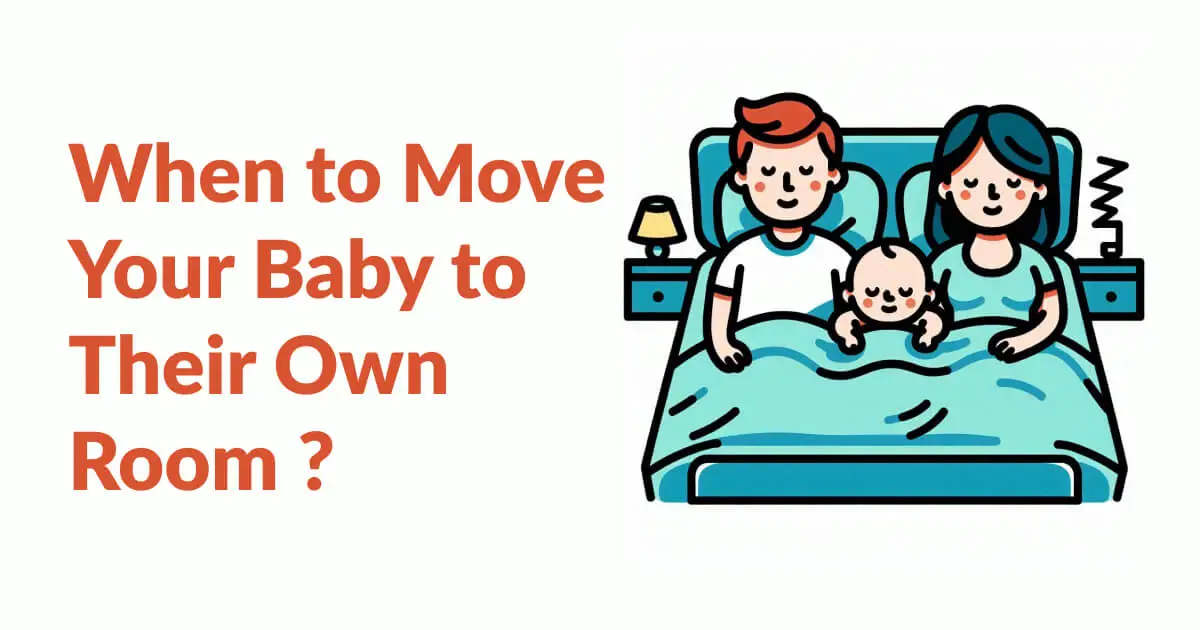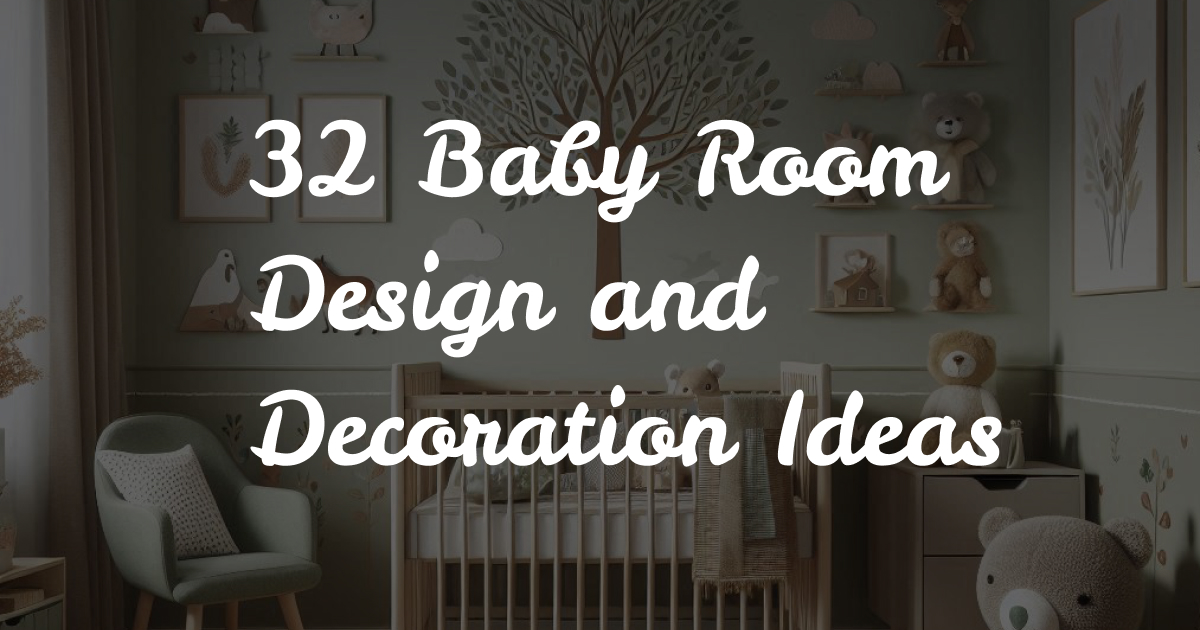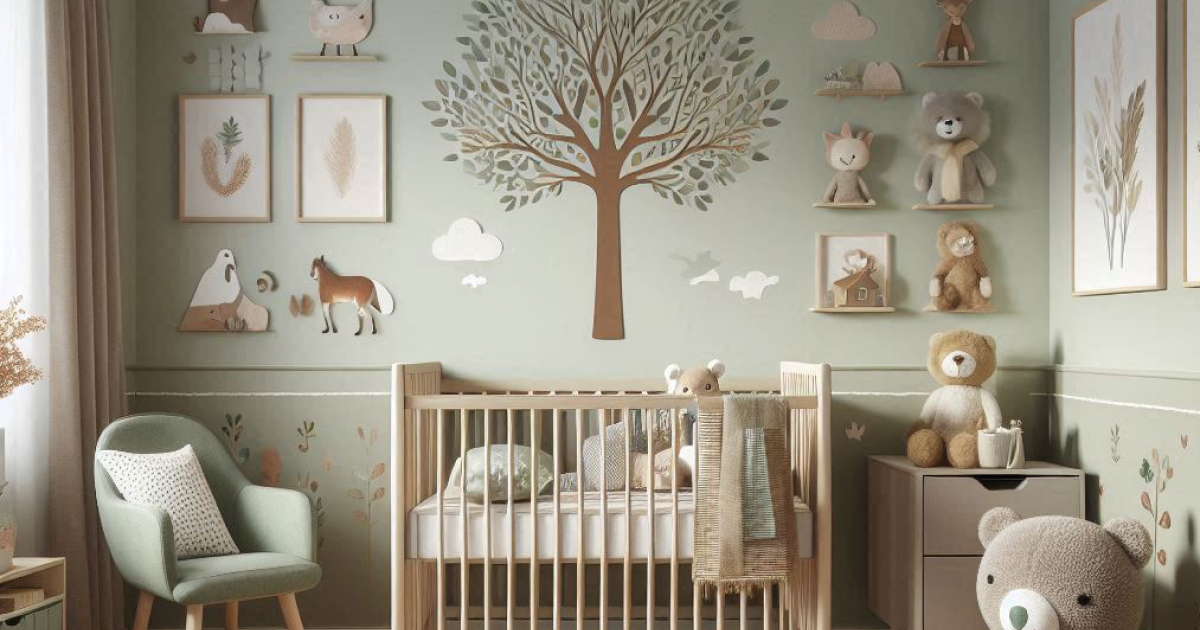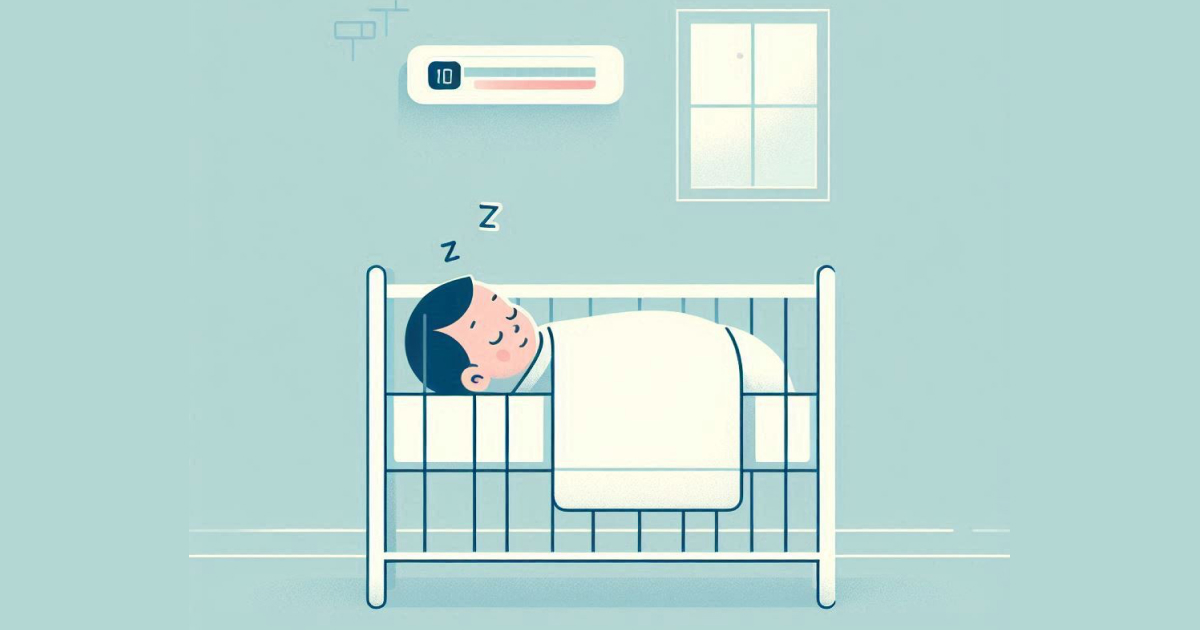
When to Move Your Baby to Their Own Room ?
Let's break down the facts and explore the pros and cons of room sharing versus independent sleep, so you can make an informed decision that works best for your family.
sleepparentingbabybedroomRemember those blissful days before baby arrived? Sleep was a given, not a luxury. Now, you’re counting the minutes (or seconds) until you can close your eyes for a few precious moments. And as your little one grows, the question arises: When do we move them to their own room?
This is a question that can spark a debate. The American Academy of Pediatrics (AAP) recommends room-sharing for at least the first six months, and ideally for the first year, to reduce the risk of SIDS (Sudden Infant Death Syndrome). But other experts argue that babies sleep better and longer stretches in their own room after four months of age.
So, what’s a sleep-deprived parent to do? Let's break down the facts and explore the pros and cons of room sharing versus independent sleep, so you can make an informed decision that works best for your family.
The Science of Sleep: Room Sharing and SIDS
The AAP’s recommendation to room share for at least six months, and ideally a year, is based on a strong body of research. Studies have shown that room sharing reduces the risk of SIDS by 50%. This is because proximity allows parents to respond to their baby’s cues, potentially preventing a life-threatening situation.
How Does Room Sharing Reduce SIDS Risk?
Here’s the science behind room sharing:
- Breathing Patterns: Room-sharing allows parents to be more attuned to their baby’s breathing patterns, which can be subtle in infants. If a baby’s breathing becomes irregular, a parent might notice sooner and be able to respond.
- Sleep Cycle Awareness: Parents who room share are more likely to be aware of their baby’s sleep cycles. They’re more responsive to their baby’s subtle cues that indicate a need for comfort or feeding, which can help prevent prolonged periods of sleeplessness and restlessness in babies.
- Reduced Risk of Overheating: Room sharing can help keep babies safe from overheating, as parents are more likely to notice if a baby is getting too hot.
The Flip Side: When Room Sharing Might Not Be Ideal
While room sharing offers significant benefits, it’s not a one-size-fits-all solution. Some parents find that room sharing beyond four months can actually lead to more nighttime wakeups and disrupted sleep for both parents and babies.
What Does the Research Say?
A recent study published in the journal Pediatrics found that babies who room-share beyond four months of age are more likely to be pulled into their parents’ bed during the night. This can lead to unsafe sleep practices, like a baby sleeping on a couch or between parents, which increase the risk of SIDS.
Sleep Deprivation: A Major Concern
Sleep deprivation can have a significant impact on parents’ mental and physical health, as well as their ability to care for their child. Studies have shown that sleep-deprived parents are more likely to experience:
- Postpartum Depression: Lack of sleep can exacerbate the symptoms of postpartum depression, impacting mood and overall well-being.
- Marital Strain: Sleep deprivation can lead to increased conflict and tension in relationships, putting a strain on marital harmony.
- Safety Risks: Sleep-deprived parents are at higher risk of accidents, including car accidents, due to impaired alertness and reaction time.
- Child Abuse: In extreme cases, chronic sleep deprivation can contribute to a higher risk of child abuse due to frustration and decreased emotional regulation.
The Catch-22: Safe Sleep vs. Family Well-Being
The tension between the AAP’s recommendations for room-sharing and the reality of sleep-deprived parents is a common one. Many parents struggle with the fear of SIDS but also know that their own well-being and their family’s overall health are essential for providing a loving and supportive home for their child.
Finding the Balance: What Works Best for Your Family
There is no right or wrong answer to the room-sharing dilemma. Ultimately, the decision should be based on what feels best for your family and your individual baby’s needs.
Here are some key factors to consider when deciding when to move your baby to their own room:
- Your Baby’s Age and Development: Babies under six months old, especially newborns, generally benefit from room sharing. As they get older and more independent, they may be ready to sleep in their own room. However, this is not a strict rule. Some babies adjust easily to their own room at a younger age, while others may need more time.
- Your Baby’s Sleep Patterns: If your baby is consistently waking up multiple times a night and making it difficult for you to get any sleep, moving them to their own room might help them and you sleep better.
- Your Family’s Dynamics: Consider your living situation, family routines, and your own sleep preferences. If you have a partner who is a light sleeper or if you live in a small apartment, moving your baby to their own room might be a good idea.
- Your Comfort Level: Trust your instincts. If you are constantly worried about your baby’s safety or if you’re struggling to sleep soundly with them in the same room, moving them to their own room may be the right decision.
5 Tips for Moving Your Baby to Their Own Room
If you decide to move your baby to their own room, here are some tips to make the transition smoother:
Start Early: Don’t wait until your baby is already sleeping through the night to move them. Start the transition gradually, even before your baby is sleeping in their own room. This could include introducing a bedtime routine, setting up a comforting sleep environment, or using a white noise machine to create a peaceful sleep space.
Create a Cozy and Familiar Space: Make sure your baby’s room is a welcoming and safe space. Start by making their room a familiar and positive place. Put some of their favorite toys and blankets in the room so they feel a sense of comfort. Use a calming color scheme and keep the room clutter-free and well-lit. This can help your baby feel secure and relaxed.
Gradually Increase the Distance: Begin by placing your baby’s crib or bassinet close to your bedroom door. This way, they can still hear you and feel your presence. As they get used to sleeping in their own room, you can slowly move the crib farther away.
Establish a Consistent Bedtime Routine: Having a consistent bedtime routine can help your baby signal their body that it’s time to sleep. This could include a warm bath, a soothing massage, a bedtime story, and a lullaby.
Be Patient and Consistent: It’s important to be patient during the transition to their own room. Your baby may protest or cry when they are first moved. Don’t give in to the temptation to bring them back to your room. Instead, comfort them and put them back down in their crib. Consistency is key to creating a new sleep pattern.
Wrapping Up: A Journey of Love and Sleep
The decision of when to move your baby to their own room is a personal one. There is no right or wrong answer. Trust your instincts, consider your baby’s developmental stage, and balance your child’s safety with your own well-being. As you navigate this journey, remember that you are a loving and dedicated parent, and you are doing your best. Sleep will come. And so will the moments of joy, connection, and laughter that make parenthood so incredibly rewarding.
Explore & Read More Blog Articles

32 Baby Room Decor Ideas
A collection of 32 creative ideas for your baby's room. Get inspired by these design ideas and create your own room.

The Guide to Creating the Perfect Nursery
As you eagerly await your little baby's arrival, one of the most exciting tasks on your to-do list is creating their very own room / nursery.

Navigating Postpartum Depression as a New Dad
A guide to navigating postpartum depression as a new dad, including tips for coping, communication, and self-care.

Postpartum Depression: Signs, Symptoms, and Seeking Help for New Moms
Discover the signs and symptoms of postpartum depression, understand the difference between baby blues and PPD, and learn how to seek help

How To Dress Your Baby for Sleep
A story of sleepless nights, the nighttime temperature struggle, and how to dress your baby for sleep.

Why Do Toddler Tantrums Happen?
This guide is your roadmap to conquering those nightly meltdowns and reclaiming your sanity. The Toddler Tantrum Tango: A Nightly Struggle.

Why Your Infant Won't Stop Crying?
A guide to help you understand why your newborn cries non-stop at night and how to soothe them.

When to Move Your Baby to Their Own Room ?
Let's break down the facts and explore the pros and cons of room sharing versus independent sleep, so you can make an informed decision that works best for your family.